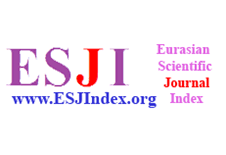BORROWED COMPLEX WORDS FROM ENGLISH TO UZBEK IN FOREIGN PROFESSION ( BASED ON SEMANTIC ASPECTS )
Davronova Asila Yusuf qizi
Student of Termiz State University
Davlyatova Elvira Muradovna
PhD ,Teacher of the Faculty of Foreign Philology of Termiz State University
Keywords: professions , linguistic globalization , specialized vocabulary , professional terms
Abstract
This article aims to analyze the borrowing of complex English words into Uzbek, focusing on foreign professions from a semantic perspective. Utilizing a qualitative method, the research examines a corpus of texts from professional fields such as technology, medicine, and business to identify and categorize borrowed terms. The findings reveal significant patterns in the adaptation and integration of these words, highlighting both direct translations and semantic shifts. The study concludes that the semantic adaptation of English terms into Uzbek reflects broader trends in linguistic globalization and professional language evolution.
References
Haugen, E. (1950). The Analysis of Linguistic Borrowing. Language, 26(2), 210-231. doi:10.2307/410058
Myers-Scotton, C. (2006). Multiple Voices: An Introduction to Bilingualism. Wiley-Blackwell.
Khalilova, S. (2019). Phonological and Morphological Adaptation of English Borrowings in Uzbek. Journal of Central Asian Linguistics, 2(1), 45-62.
Thomason, S. G., & Kaufman, T. (1988). Language Contact, Creolization, and Genetic Linguistics. University of California Press.
Poplack, S., Sankoff, D., & Miller, C. (1988). The Social Correlates and Linguistic Processes of Lexical Borrowing and Assimilation. Linguistics , 26(1), 47-104. doi:10.1515/ling.1988.26.1.47
IMPORTANCE OF BORROWED WORDS IN THE FIELD OF CULTURE AND ART Davronova Asila, Ibragimova Gulshana, Davlyatova Elvira Muradovna
Multidisciplinary Journal of Science and Technology 3 (5), 30-31, 2023

















